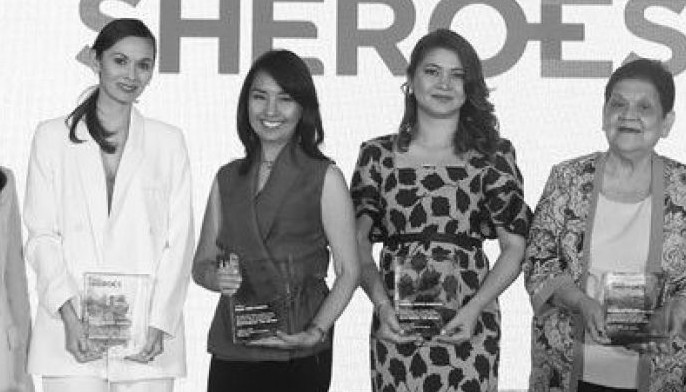A decent way to live
My first impression of Calauan, Laguna was that it is such a beautiful place – wide roads, beautiful hills, fresh cool air. Together with my friend Gina Lopez and our kids, we went biking along its resettlement areas. At that time in May 2009, I saw its possibilities.
That visit to Calauan was followed by a second trip in June 2009. About 50 of us – friends, kids, along with the family members of Gina – painted the homes. Accompanied by iPod music we happily painted away.
When I visited Calauan again six months after, I was amazed at the transformation. There were already 1,200 families living in the Calauan reselttlement site. Some 400 of them came from shanties in Estero de Paco in Manila, and the rest from the neighboring areas. Despite that, I saw no trace of the burden of the life they once had. The children were beautiful. They looked happy and well cared for. Their faces were glowing, clean – so full of life.
I asked a child about his life in Calauan. He said, “Masaya kami dito kasi hindi mabaho (We’re happy here because it doesn’t stink).” I saw pictures of where they once lived in the Estero de Paco – the sight was horrific and sad. Their toilet was a hole on the floor leading straight to the estero (canal). I thought, “How can the informal settlers be expected to care for their environment when dignity is absent in their daily life? Could it be that if given the respect and dignity due any human being – like a decent home, proper education, livelihood opportunities – a person will, in turn, learn to care for his environment?”
The photos I took of the resettlement site in Calauan, Laguna show the impact that decent dwelling can make on an individual, his family and community.
Clean, pristine, and peaceful – that’s how a first timer in the Calauan neighborhood will describe the place. The streets are clean. I did not see garbage lying around. What can be recycled have been used to beautifully accent the houses and gardens. Walking along the paved streets and seeing green around me, I felt safe and cared for.
More than the place, it is the people that make the settlement in Calauan a happy and peaceful place to live. The elderly are caring and involved in housekeeping. The adults are productive and take active part in community duties. The children are dressed neatly. They look happy and content – I can tell that whatever they have is enough. Children biking on the streets, not being scared of someone stealing their bike, is a testament of their community being a safe haven.
Creativity happens when dignity is experienced: lanterns made of plastic bottles, vegetable and flower gardens, white picket fences, personalized landscapes are proof of the happy and creative life of the settlers in Calauan.
As I toured the neighborhood – I was shown the furniture workshop, compost area, recreation venue, and elementary school – it is not surprising why even my 10-year-old son Basti found the neighborhood safe, creative and alive. While the improvised lanterns delighted him, it was the sari-sari store that turned out to be his amazing find.
Everything in the community is a blessing to the settlers. Polished floors, painted houses, and home-based livelihood have allowed them to live decently.
I was so impressed with the belen, Christmas tree, and decor made by the residents as their gift to the community. While many of us usually buy trimmings, they recycle common items and transform them into beautiful works of art. Priceless.
The eyes are truly a window to the soul. As I watched the children playing, posing for pictures and smiling, I could not help but notice their eyes. They look alive, full of hope and courage. They have dignity.
The pride one mother feels as she shows the intricate plaits she made on her child’s hair is reflective of the loving care and attention she devotes to caring for her family and their home.
If we can have this setting on a bigger scale and focus on giving a sense of structure and order, it will be natural for any person to care for his community.
If one learns to value himself, he will learn to value his environment. If he knows that he matters, he will regard his environment with as much importance.
Sam, for example, to the eyes of many, used to be a mere informal settler. After moving to Calauan and becoming a homeowner, he assumed the role of “village reporter.” With his microphone in tow, he tours visitors around and shows off his neighborhood with pride. His story is just one of the many in the Calauan settlement whose lives were changed when they were given the chance to experience a decent way to live.
- Latest



























